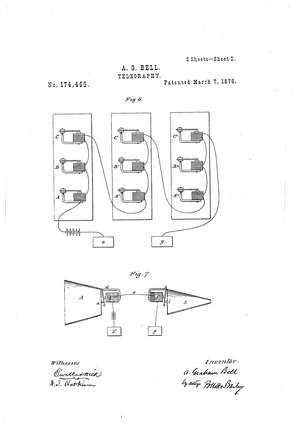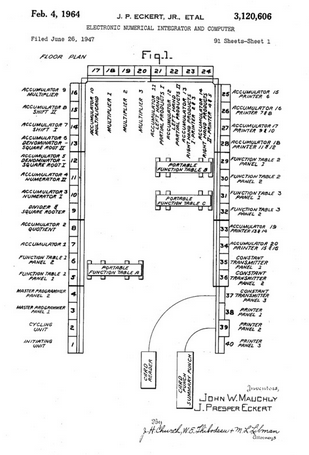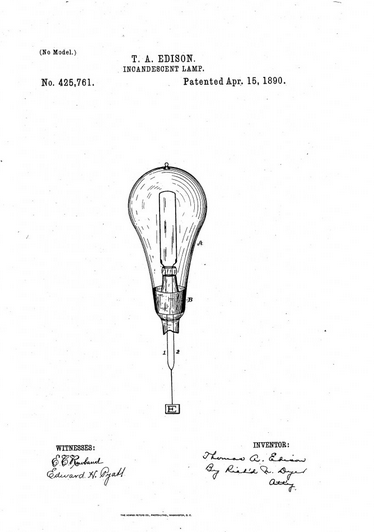Since the beginning of human existence, inventions have been improving our lives. For example, many technological innovations in the past few centuries have had significant effects on the ways we live today. From the smartphone or computer that you’re reading this on to the light bulbs lighting your home, virtually every invention that has impacted our current era of technology has been the subject of numerous patents. A patent is a grant from the US government giving you the exclusive rights to make, use, or sell your invention. Patents can play a critical role in preventing others from copying and profiting off of your idea. You may not immediately think of patents when you think of the inventions that we enjoy today, but if they hadn’t been patented, companies may never have invested the money and time necessary to fully develop and manufacture the products.
While the full list of major technological inventions around us would fill several books, here is a quick look at a few of the inventions that truly changed the world. In the below inventions, as in many others, patents played a large role in motivating companies to fully develop and commercialize the inventions.
The Telephone
Technology certainly is king in 2019, with smartphones playing an undeniably key role in our lives. Yet, back in 1876, several inventors were hard at work in a bid to become the first inventor of the old fashioned landline telephone. Illustrating the importance of patents even back then, a couple of inventors whose names you probably don’t know — Elisha Grey and Antonio Meucci — and one whose name you definitely know — Alexander Graham Bell — all filed paperwork demonstrating a telephone design at around the same time. While what actually followed legally remains murky and steeped in controversy, it was, of course, Alexander Graham Bell who was ultimately declared to be the first to file his patent application. Today he is known as the inventor of the telephone.
The other threat of waiting to register trademarks is that another brand may attempt to use the phrases that you feel are intrinsic to your brand. You may have no legal room to defend yourself if you have not already registered your trademarks. This can ultimately lead to confusion and potentially fruitless legal battles that weaken your brand and cost you more than money in the long run. Your brand may be less recognizable in the long run which can also demoralize your company.
Here is a quick look at Alexander Graham Bell’s design, as patented on March 7, 1886:

Over 100 years later, Bell’s telephone concept transformed into the mobile phone and smartphone technology that we use today. In the 1970s, Greek inventor Theodore George Paraskevakos patented what would become Caller ID, something many people believe helped pave the way for future ideas about what phones could become. Today’s beloved smartphones really came from a series of gradually more in-depth inventions (and patents) from various people and companies that attempted to combine telephones with computers, the other technological staple of modern life.

Theodore George Paraskevakos’ vision of Caller ID used as a figure in his patent.

An Apple iPhone design, as filed with the U.S Patent Office in the late 2000s.
The Computer
It’s difficult to imagine where the world would be today without computers, which have revolutionized modern life. Of course, like the smartphone, the computer as we now know it is the result of many inventions and patents. But, who is the inventor of the very first computer? Just as with the telephone, the answer is debatable. However, Presper Eckert and Johan Mauchly are often credited as the inventors of the computer due to their ENIAC invention. The ENIAC was a computer that was large enough to take up an entire room.

Light Bulb
When asked who invented the light bulb, most people would instinctively answer with the name of Thomas Edison. But, as the telephone and computer inventions demonstrate, trying to determine who was “first” to create something isn’t always so simple. In fact, several inventors were in the process of creating and submitting their own concepts of what would become the light bulb. A UK inventor, named Joseph Swan, filed a UK patent for the light bulb in 1878. Soon after, Edison improved on Swan’s design and filed his own U.S patent. However, the improvements led to a court battle over patent infringement. Luckily, the two decided that their respective geniuses should join forces, and they formed a joint light company.

An incandescent lamp patented by Edison in 1890.
Patents Played a Critical Role
The television, the World Wide Web, GPS devices, and radios all had their own patented road to travel down as well before becoming the devices that we know and appreciate today. Almost all of these devices had more than one inventor vying for the chance to be known as the first inventor of such a monumental device. Often, the reason these inventors were able to hold onto and own their inventions was that they successfully applied for and received a US patent. Otherwise, their inventions would have been stolen and exploited by others.
If you’re an inventor, filing a patent application with the U.S Patent Office is critical in attempting to secure your rights to your invention. When a patent is obtained for an invention it becomes easier for the inventor to commercialize and profit from the invention.
Taking prompt action and contacting the attorneys of Garcia-Zamor before disclosing your invention to anyone else should give you peace of mind in knowing that you are doing everything right.
Filing a patent application is a complex and often confusing process. Contact the patent attorneys at Garcia Zamor for help securing your invention. We have over twenty years of experience protecting the inventions that have helped improve our world and can provide the services you need to protect your creation. Send us a message today for more information.







